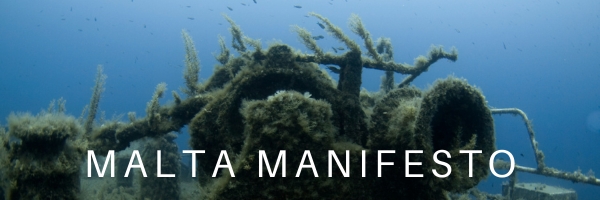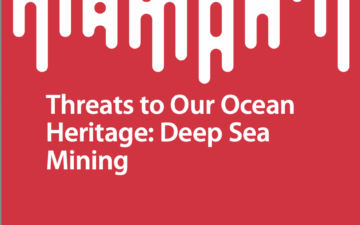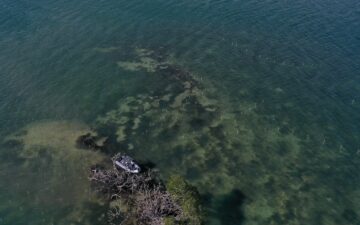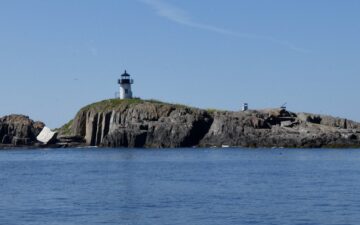Global coalition of experts calls for international finance task force to fund urgent intervention
PRESS RELEASE from Lloyd’s Register Foundation
For immediate release: 12 June 2025
LONDON, UK – Nearly 80 years on from the end of World War II, a call to tackle the toxic global legacy of shipwrecks it left behind has been issued by an international coalition.
On 12 June, as part of the third UN Ocean Conference, Project Tangaroa – a global community of experts coordinated by Lloyd’s Register Foundation, The Ocean Foundation and Waves Group – has published The Malta Manifesto, in a bid to encourage governments to act decisively before the situation reaches breaking point.
It is estimated that at least 8,500 potentially polluting wrecks (PPWs) are sitting at the bottom of the ocean, the majority left by the First and Second World Wars. The true number is likely to be much higher. This is a global issue, with wrecks strewn from the Baltic and the Mediterranean in Europe, to the Arctic, the Caribbean, and the coasts of Latin America. High concentrations can also be found in the South Asia-Pacific region – a result of numerous naval battles in the Pacific theatre of World War II – where many coastal and island states lack the resources to deal with them effectively.
These wrecks, the coalition says, contain vast quantities of oil and other hazardous materials, including munitions, and are becoming more unstable – a process exacerbated by impacts of climate change such as increased storminess and ocean acidity. Some are already leaking oil into the oceans, putting marine ecosystems, vital fishing grounds and vulnerable coastal communities at risk.
In The Malta Manifesto, Project Tangaroa outlines a framework to tackle the problem, advocating for a precautionary approach and global cooperation to implement sustainable long-term solutions. The Manifesto features seven key calls to action, covering financing, standards, regional and national planning, innovation, training and data sharing, for governments, industry, researchers and civil society globally to address the challenge. It aims to transform the situation before the 100th anniversary of World War II in 2039.
Lydia Woolley, Project Tangaroa Programme Manager at Lloyd’s Register Foundation and formerly the UK Government’s Receiver of Wreck, said: “PPWs pose a great global threat to coastal communities and marine ecosystems. Left unmanaged, they could result in the destruction of vital fishing grounds and coastal tourism, with devastating effects on the marine environment, human health and wellbeing, as well as local and regional economies.
“However, our message is not fatalistic – it is one of urgent encouragement. Thanks to the work of the global community of experts brought together by Project Tangaroa, we already know how to manage the risks posed by these wrecks – but we need the resources to put this knowledge to use at the required scale.”
Simon Burnay, Chief Executive of Waves Group, added: “Collectively, we have the proven experience and methodologies for assessing and reducing the risks posed by PPWs. An internationally accepted standard will help scale these capabilities globally, providing funders with the assurance needed to have a lasting positive outcome for future generations.”
A critical recommendation of the Manifesto is the establishment of an international PPW Finance Task Force, to drive international cooperation and innovative financing solutions – involving the private and philanthropic sectors as well as government – to deliver the funding required for a challenge of this scale and urgency.
Mark J. Spalding, President of The Ocean Foundation, said: “We have thousands of environmental time bombs ticking on our ocean floor, with billions in remediation costs and no dedicated funding mechanism. The bureaucratic luxury of slow responses doesn’t match the environmental urgency – we need a Finance Task Force with the authority to act before 2039.”
Some important work to assess and make safe individual PPWs had already been conducted or is ongoing. Although these efforts have been limited – typically in response to an identified oil leak or request for intervention – they may serve as a useful blueprint for larger-scale action.
HMS Cassandra, a British cruiser, was sunk in the Baltic Sea on 5 December 1918. En route to support Latvian and Estonian forces against the Bolsheviks in the immediate wake of the First World War, the ship hit a mine near the Estonian island of Saaremaa, with the loss of 11 of her 400 crew.
Responding to the concerns of the Estonian government about the condition of the wreck, the Salvage and Marime Operations team (SALMO), part of the UK Ministry of Defence’s (MoD) Defence Equipment and Support (DE&S) arm, is currently working with Waves Group to conduct a detailed survey.
Matt Skelhorn, Head of the UK MOD Wreck Management Programme at DE&S SALMO, said: “With the survey of the Cassandra, we’re already putting into action the proof of concept for the Malta Manifesto. We look forward to sharing the survey outputs in due course, which will inform how we continue to work with the Estonian government to take action to prevent oil leakage if required. Cassandra has the potential to become a blueprint for future international collaboration when it comes to addressing the risks caused by PPWs.”
The SALMO team has been closely involved with Project Tangaroa since its inception, providing critical insights on the practical and political challenges involved with the management of its own inventory of more than 5,000 wrecks around the world, and welcomed the launch of the Manifesto.
Matt said: “The Malta Manifesto is a critical step towards the appropriate management of PPWs across the world. It clearly articulates the risks posed, and the vital need for international collaboration and agreed standards, as well as enhanced resilience, response capacity and local empowerment to address this globally significant challenge.”
On 11 June, the International Council on Monuments and Sites (ICOMOS) and the International Union for Conservation of Nature (IUCN) – key supporters of Project Tangaroa – submitted a statement to the UN Environment Programme urging action on PPWs.
Dr Christopher Underwood, President of the ICOMOS International Committee on the Underwater Cultural Heritage (ICUCH), said: “ICUCH is fully supportive of the Malta Manifesto: it provides clarity on the risks and consequences of PPWs and describes a roadmap aimed at promoting preventative action, rather than facing the very real alternative possibility of hugely damaging oil spills.
“The timely example of HMS Cassandra reminds us that many of these wrecks are also the last resting place of some or all of their crews. As such, the upmost care must be taken to minimise their disturbance during surveys and interventions. The Malta Manifesto, critically, recognises this and other management issues that reveal a complexity in addressing both natural and cultural perspectives.”
Read The Malta Manifesto in full on the Lloyd’s Register Foundation website.
Media Contact:
Ed Morrow – [email protected], for more information on Project Tangaroa and The Malta Manifesto.
Media interviews can be arranged via [email protected].
About Project Tangaroa
Project Tangaroa is a Lloyd’s Register Foundation-funded programme delivered through Waves Group in partnership with The Ocean Foundation, and supported by the International Union for the Conservation of Nature (IUCN) and the International Council on Monuments and Sites (ICOMOS) International Committee on the Underwater Cultural Heritage (ICUCH). It was initiated to develop a global framework for the near- and long-term assessment, intervention and sharing of data on potentially polluting wrecks.
Find out more at project-tangaroa.org.
About Lloyd’s Register Foundation
Lloyd’s Register Foundation is an independent global safety charity that supports research, innovation, and education to make the world a safer place. Its mission is to use the best evidence and insight to help the global community focus on tackling the world’s most pressing safety and risk challenges.
For more information about Lloyd’s Register Foundation, visit lrfoundation.org.uk.
About The Ocean Foundation
The Ocean Foundation is the only community foundation working exclusively for the ocean, supporting marine conservation and ocean science through strategic partnerships and innovative funding mechanisms. As a leader in ocean heritage protection, The Ocean Foundation co-led Project Tangaroa. This groundbreaking initiative documented potentially polluting wrecks globally and developed the foundational research demonstrating the urgent need for dedicated financing mechanisms to address underwater environmental threats. Through its work on maritime heritage preservation and wreck remediation, The Ocean Foundation has established itself as a key advocate for protecting our ocean’s cultural and environmental legacy while addressing the modern challenges posed by historical maritime activities.
For more information about The Ocean Foundation, oceanfdn.org.
About Salvage and Marime Operations (SALMO)
The Salvage and Marime Operations team (SALMO), part of the UK Ministry of Defence’s (MoD) Defence Equipment and Support (DE&S) arm, is a team of civilian specialists who support the Royal Navy and MoD. SALMO’s role includes responding to any Royal Navy incidents at sea involving ships, submarines and aircraft, and providing underwater engineering support to maintain Royal Navy vessels.
As part of SALMO’s work, the SALMO Wrecks team is responsible for managing the environmental risk presented by the inventory of more than 5,000 shipwrecks around the world which were under MOD-ownership when they sank. Where wrecks containing significant amounts of oil pose a pollution risk, the SALMO team may work to safely extract the fuel. SALMO Wrecks manage this risk on behalf of the Royal Navy, with whom they work closely to ensure any wrecks where service personnel lost their lives are preserved as far as possible.
For more information, consult JSP 418 Leaflet 10 on legacy shipwrecks.







